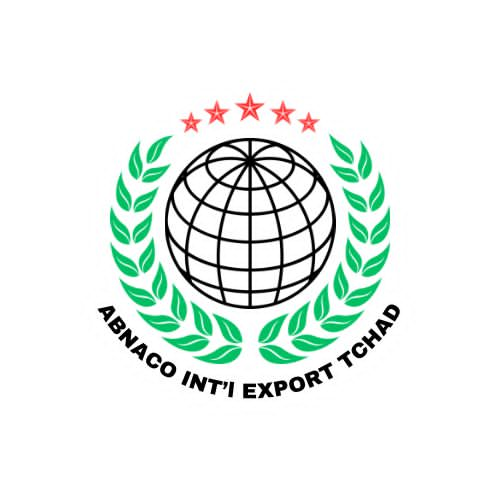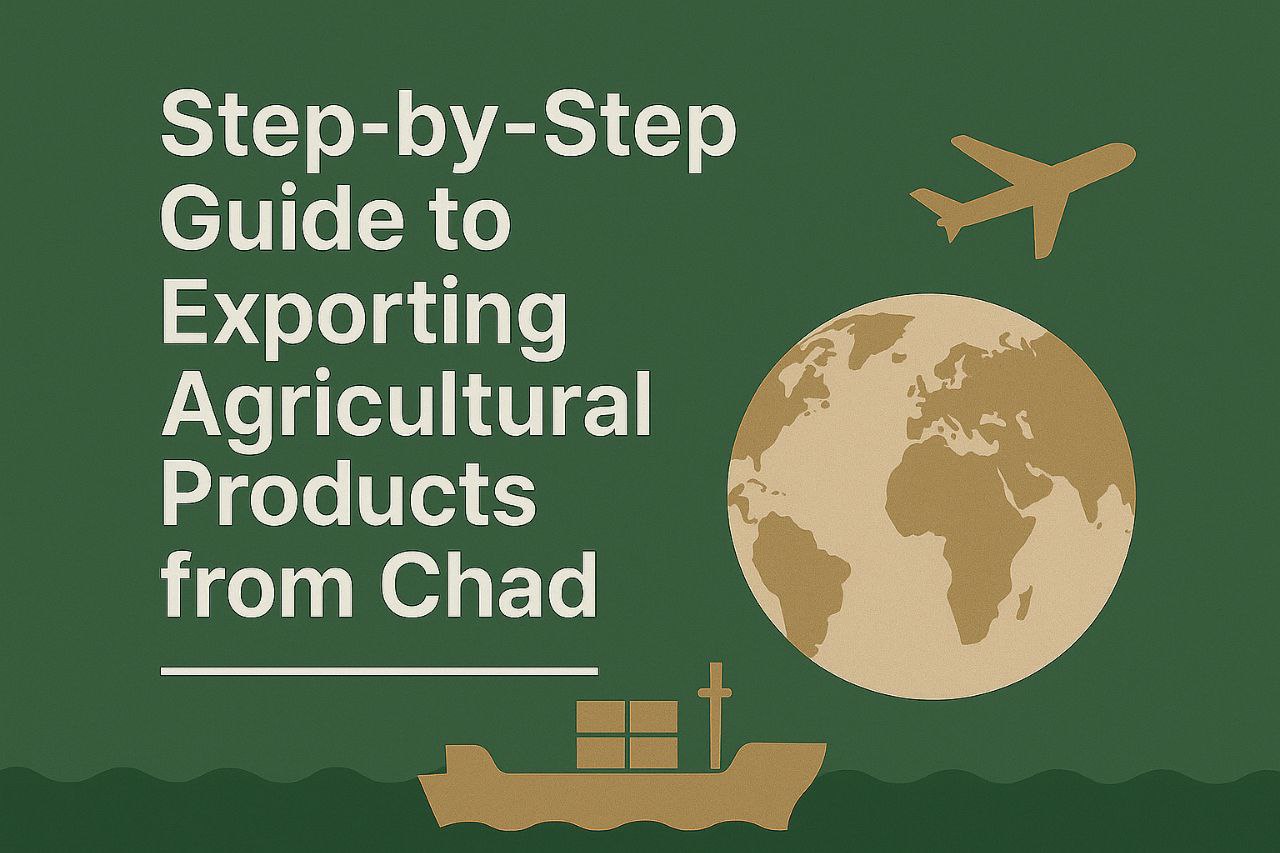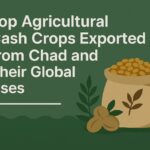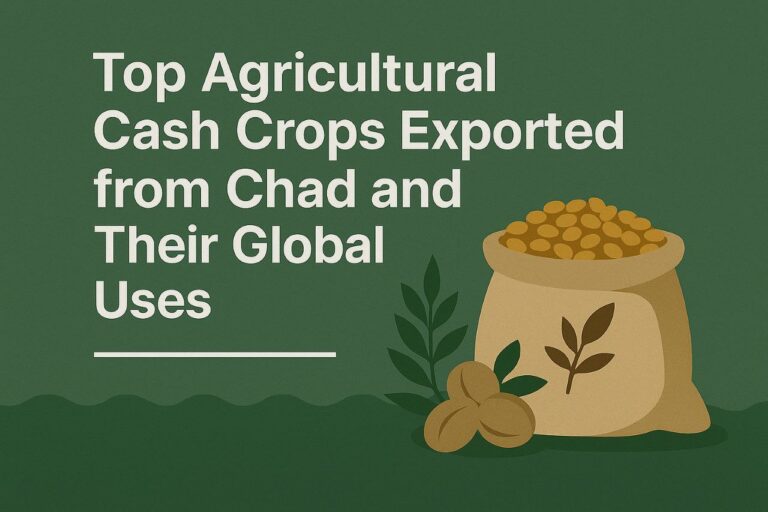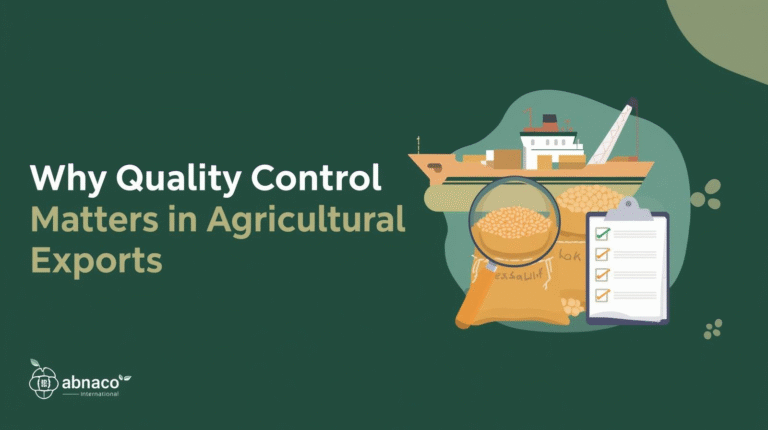Exporting agricultural products is one of the most promising ways to grow Africa’s economy and strengthen global trade connections. In Chad, thousands of farmers depend on agriculture as their main livelihood, producing crops like sesame seeds, gum arabic, groundnuts, shea nuts, and hibiscus flowers. However, successfully moving these crops from farms to international buyers requires …
Exporting agricultural products is one of the most promising ways to grow Africa’s economy and strengthen global trade connections. In Chad, thousands of farmers depend on agriculture as their main livelihood, producing crops like sesame seeds, gum arabic, groundnuts, shea nuts, and hibiscus flowers.
However, successfully moving these crops from farms to international buyers requires expertise, precision, and compliance with export standards. That’s where ABNACO International Export Tchad comes in—ensuring a smooth, transparent, and reliable export process from start to finish.
In this guide, we’ll walk you through the step-by-step process of exporting agricultural products from Chad.
1. Product Selection and Sourcing
Every successful export begins with the careful selection of high-quality products.
At ABNACO, we work directly with trusted local farmers and cooperatives who follow sustainable agricultural practices.
We source only the finest products that meet both domestic and international standards, including:
- Sesame seeds: Clean, high-oil-content varieties.
- Gum arabic: Naturally harvested from acacia trees.
- Groundnuts: Dried and sorted for the oil and food industries.
- Shea nuts: Hand-picked and unrefined for cosmetic use.
- Hibiscus flowers: Naturally sun-dried and free from chemical treatment.
This direct sourcing model ensures traceability, fair trade, and consistent quality.
2. Cleaning, Grading, and Packaging
Once sourced, the products undergo processing and quality control to prepare them for export.
a. Cleaning:
Raw materials are cleaned to remove stones, sand, and other impurities.
b. Grading:
Crops are sorted by size, colour, and quality to meet different buyer specifications.
c. Packaging:
We use export-grade packaging materials, such as jute or polypropylene bags, depending on the product type. Proper packaging helps prevent moisture absorption and ensures a long shelf life during transportation.
ABNACO adheres to international hygiene and safety standards, guaranteeing that every shipment arrives in perfect condition.
3. Documentation and Certification
Exporting agricultural products requires proper documentation to meet customs and regulatory requirements in destination countries.
ABNACO handles all essential paperwork, including:
- Certificate of Origin: Confirms that the goods are produced in Chad.
- Phytosanitary Certificate: Verifies that the products are free from pests and diseases.
- Commercial Invoice and Packing List: Provides shipment details and product specifications.
- Quality Certificate (if required): Confirms product grading and purity.
- Export License: Approved by Chad’s Ministry of Commerce and Industry.
Accurate documentation ensures smooth customs clearance and builds buyer confidence.
4. Inspection and Quality Assurance
Before any shipment leaves Chad, each batch undergoes rigorous inspection to verify its compliance with international standards.
Our quality assurance team checks for:
- Purity levels
- Moisture content
- Packaging integrity
- Product uniformity
We also collaborate with third-party laboratories and certification bodies when required by the importing country. This ensures that ABNACO’s clients receive only premium, export-ready products.
5. Logistics and Shipping
After inspection, products are prepared for shipment. Chad’s landlocked position means exports are often transported to ports in neighbouring countries such as Cameroon or Nigeria before being shipped overseas.
ABNACO’s logistics team ensures:
- Proper coordination with freight forwarders
- Timely dispatch of cargo
- Real-time tracking of shipments
- Compliance with international transport regulations
We use both sea freight and air freight depending on the product type and the buyer’s urgency. Our goal is simple—timely, safe, and cost-effective delivery.
6. Communication and After-Sales Support
Exporting doesn’t end once goods are shipped. ABNACO maintains constant communication with clients throughout the process. We provide:
- Shipment updates
- Delivery confirmations
- Product feedback handling
- Post-delivery support for long-term partnerships
This commitment to transparency and trust sets us apart in the global export industry.
7. Why Partner with ABNACO International Export Tchad
Choosing the right export partner can make all the difference. With years of experience in agricultural export logistics, compliance, and trade management, ABNACO ensures that every client enjoys:
- Competitive pricing
- Reliable supply chain management
- Quality you can trust
- End-to-end export assistance
Our expertise helps buyers save time, minimise risks, and access the best of African agriculture.
Conclusion
Exporting agricultural products from Chad requires knowledge, coordination, and dedication. By following each step carefully—from sourcing to shipping—ABNACO International Export Tchad guarantees professionalism and consistency at every stage.
Looking for a trusted exporter of African agricultural products? Contact ABNACO International Export Tchad today to get a customised export quote.
